
When Casino Royale hit theatres in 2006, it had been four years since 2002's Die Another Day. That film, with its invisible car, spotty CGI, and general campiness, signaled that perhaps the world had moved on from James Bond's world of high-tech gadgetry, disposable sexual encounters, and quips in the face of carnage forced. He had become pastiche and silly. The Bourne Identity, released the same year as Die Another Day, was gritty and action-packed, with a visceral feel to its violence, and more character-driven than gadget-driven. If the franchise was to survive, changes would have to be made. EON decided it had to go back to the beginning.
Despite fan's attempts to prove that the name "James Bond" is a code name, passed on to one agent after another, the franchise has never really played by those rules. James Bond, despite being played by five prior actors, was always the same character.
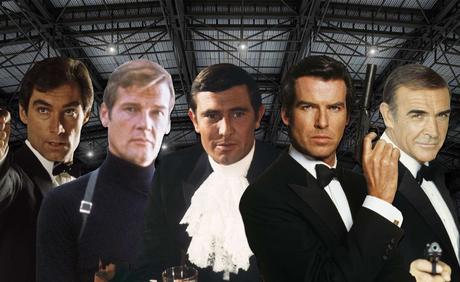
The Daniel Craig era wipes previous incarnations from the board, building the character from scratch and using Fleming's novel to provide a foundation and context for the emotionally detached spy. He emerges from the water and into a franchise that was in dire need of his services.
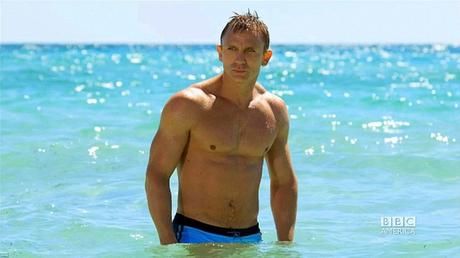
Every generation gets a Bond to reflect its era. Whether its Connery's wry, amused ruthlessness, Moore's debonair aloofness, Dalton's steely resolve, or Brosnan's suave detachment, Bond adapts to the world around him. Post 9/11, Casino Royale is about terrorism and money, not world domination, with an underlying fear that government agencies may not always have the most honorable of intentions.
It doesn't take long for Casino Royale to convince you it's a different kind of James Bond film. It opens in black and white, with James Bond hiding in the shadows, only just becoming a 00 agent through the killing of a traitorous section chief's contact, and is preparing to murder Dryden, the traitorous section chief. Dryden taunts Bond about the idea that he might be haunted by the killing, finally sneering, "Made you feel it, didn't he? Well, you needn't worry. The second is,-" before Bond fires, replying, "yes, considerably."
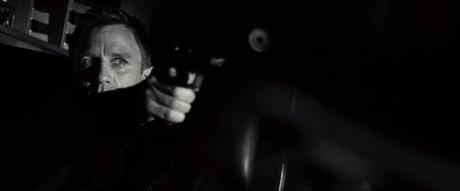
With that, the opening credits launch, a pulsing alternative rock song blasts, and we're off. While it may not be entirely clear whether or not Bond feels anything when he kills, director Martin Campbell ensures the audience knows this movie will feel harder and darker than anything that has come before it.
The grittier, more vicious feel of James Bond films has been the standard for nearly the past decade and a half, so it's difficult to remember how shocking the opening felt. It was a gut punch intro to Daniel Craig's Bond, a portrayal that was at once more brutish and more emotionally vulnerable than the character had felt in quite some time.
Casino Royale pulls heavily from Ian Fleming's novel of the same name. The plot centers around terrorist banker Le Chiffre (played with reptilian ruthlessness by future Hannibal Lecter Mads Mikkelsen).
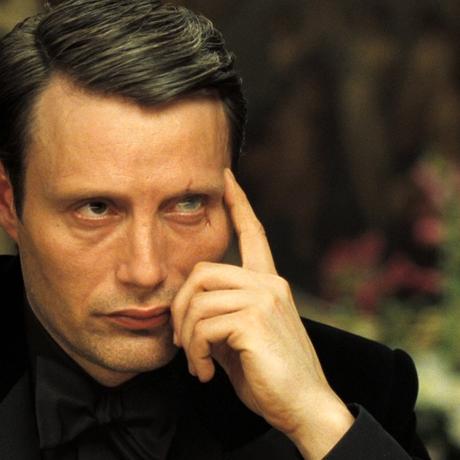
He gambles with a powerful organization's money, loses it, and his attempt to get it back through a high-stakes poker game. MI6 sends Bond to win the game, in the hopes that a loss will force Le Chiffre to turn over information on his terrorist connections for asylum on British soil. The risk of course, as British treasure agent and Bond girl Vesper Lynd (a fantastic Eva Green), is if Bond loses, then the British government has directly funded terrorism. The film's uncanny ability to actually make a poker game seem tense might be its greatest accomplishment, were it not for everything else it manages to get right.
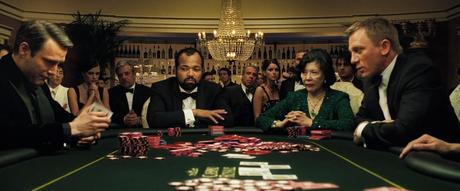
Unlike prior Bond films, Casino Royale doesn't shy away from the source material's brutal, sadistic violence nor the emotional fallout from said violence. Take the moment in which Vesper sits in a shower, shaking, because of the violence she's seen (and for perhaps other reasons that don't become clear until later). We see Bond come into the shower, and sit, holding her. It's rare for a Bond character to have that relatable a reaction to violence. The scene has become as iconic as any of the film's action sequence, and it feels like an emotional revelation for both the character and the franchise. Craig's Bond is a Bond who is capable of caring about those around him, which means he's capable of being emotionally wounded as well as physically. Both Craig and Green play the scene perfectly.
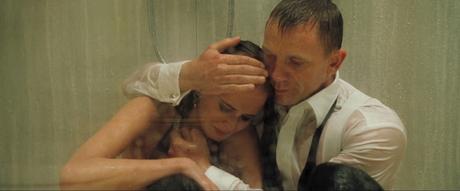
Then, of course, there's the torture sequence, in which Bond is strapped, naked, to a bottomless chair and hit repeatedly in the testicular area with a knotted rope. It remains a tough watch today, with Craig selling both Bond's physical and emotional anguish. It's another example of the film showing Bond as man who bleeds and hurts, which was something the character hand't seemed capable of since perhaps the Dalton era.
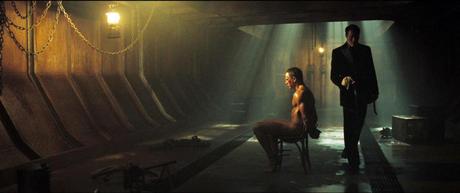
It's brutal and palpable, but perhaps the cruelest moment is one of mental torture, as Le Chiffre reminds Bond, "Because even after I slaughtered you and your little girlfriend, your people would still welcome me with open arms! Because they need what I know." Of course, Bond realizes it's true, that both Vesper and he are completely expendable, and there would be no fallout for their deaths if Le Chiffre sought sanctuary from England. Casino Royale undercuts the franchise's glitz and glamour by reminding the audience that he's a disposable cog in a far more complex machine.
Unlike previous Bond films, Casino Royale presents the blossoming romance of Bond and Vesper as two broken people finding a sense of hope in each other. The fact that neither can really escape the darker impulses that pull them back, makes their relationship heartbreaking.
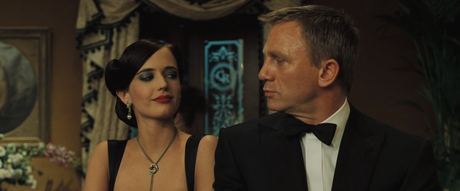
Frequently, Bond films end with a light romantic interlude, and it appears Casino Royale may do the same. Instead, the film makes an abrupt turn, leads to another stunning action set piece, and gives us the reason Bond has shut down his emotions. When he finally utters his iconic, "Bond. James Bond," and dons the familiar three-piece suit, it's borderline tragic, because we've seen the life he wanted to lead and we've watched him erase that version of himself. It's a narrative of consequences, and one of those consequences might be Bond's soul.
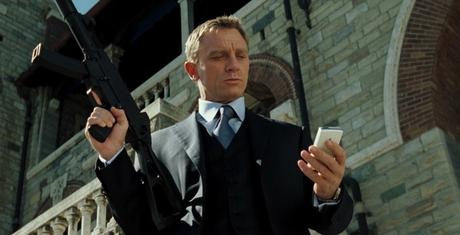
The film has a stunning series of action and suspense scenes, including a defibrillation scene that's one of the film's most nail-biting sequences, but what it manages to do best is ground the violence. It's not that the world of Casino Royale is realistic. After all, how could it be? However, the action feels more tangible, the threats more visceral. Stacking the supporting cast with thespians such as Craig, Green, Mikkelssen, Judy Dench (the one hold over from the Brosnan era), Jeffrey Wright, and Giancarlo Giannini enhances the film's verisimilitude and preserves the harder, more brutal world the film hopes to construct. Everyone brings their A-game.
Really, though, this is Craig's film to carry, and he manages to keep focus, even when Le Chiffre's scarred eye is weeping blood. It seems ridiculous that there was initial public outrage about Craig's initial casting, that the idea of a shorter (Craig was the first Bond to be shorter than six feet), blonde Bond felt like some kind of sacrilege. The flurry of "not my Bond" outcry feels patently absurd now. Craig was, and remains, superb in the role, and probably the best actor to tackle the character. He has the ability to appear both suave and completely broken depending on the situation, conveying a multitude of complex emotions in his icy blue eyes. It's a gift that he's allowed to let his Bond feel more mortal and capable of being harmed, with a multitude of injuries to show for his troubles.

When he's asked if he wants his martini shaken or stirred, he responds, "Do I look like I give a damn?" It feels as though the franchise has broken lose from the shackles of its pastiche past. What we were seeing was a whole new kind of Bond, and there would be nothing silly or campy about his portrayal.
Ultimately, Casino Royale, both the film and the novel, present the de-evolution of Bond from a man capable of abandoning the spy life in exchange for the love of a woman to the cold, ruthless spy he remains throughout the rest of the series. Unlike prior Bond films, in which Bond's detachment and inherent cruelty was already in place, we see a man who chooses to abandon his emotions, because to retain them is simply too painful. James Bond was back, and he'd never felt more welcome.

